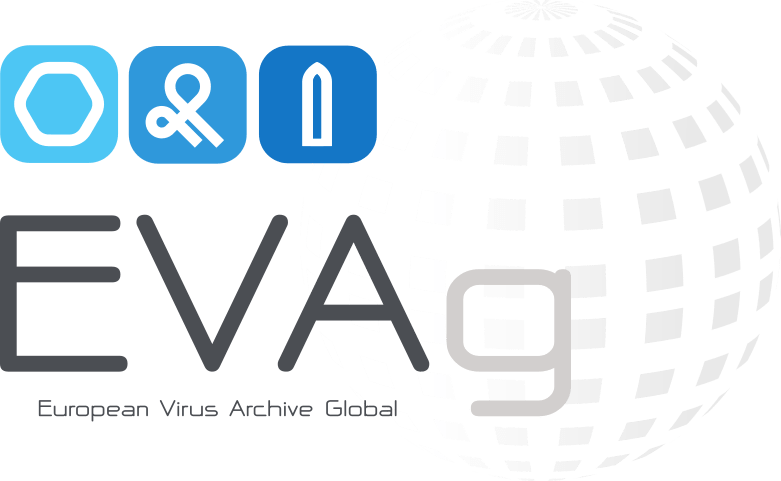Our Network of Networks
Network-of-Networks
This UK International Coronavirus Network will create a multi-disciplinary global network of coronavirus researchers for coordinating research into coronaviruses. Our network is composed of UK and international researchers on animal and human coronaviruses, ecologists, social scientists and includes critical national research infrastructure and stakeholders.
Throughout our project we will expand and develop an inclusive network with the goal to facilitate linkages between researchers (from academia, government and industry) and policy and decision makers to foster a holistic One Health-oriented approach to understanding and controlling coronavirus disease. As part of this, we utilise a network-of-networks to share information, reagents and develop open streams of communication.

EPIZONE European Research Group (ERG)
European Virus Archive-GLOBAL (EVAg)
EVAg is a non-profit organisation that mobilises a global network with expertise in virology to authenticate, characterise, amplify, standardise and distribute viruses and derived products. EVAg is a unique biological resource in the field of virology, readily available online.
EVAg is made up of an international group of 25 laboratories, including 16 EU member state institutions and 9 non-EU institutions, that represent an extensive range of virological disciplines. EVAg are focused on the creation of new tools, techniques and concepts to develop the infrastructure and to provide easier and less expensive access to virological materials.


Global Virus Network (GVN)
The power of GVN lies in its global reach, the depth of its science, and its commitment to solving viral challenges facing the human population. No other entity exists like the GVN.
Integrated Services for Infectious Disease Outbreak Research (ISIDORe)
ISIDORe brings together all key European research infrastructures and networks in the life sciences, as well as those in the social sciences. The consortium brings together 154 partners under the umbrella of BBMRI, EATRIS, ECRIN, ELIXIR, EMBRC, EMERGEN, EUOPENSCREEN, EUROBIOIMAGING, EVA-G, INFRAFRONTIER, INFRAVEC, INSTRUCT, MIRRI, SONAR GLOBAL, TRANSVAC, VETBIONET and ERINHA.
ISIDORe provides free of charge access to cutting-edge resources and services to support research projects in the field of infectious diseases in “peace time” as well as during outbreaks, epidemics or pandemics.


International Veterinary Vaccinology Network (IVVN)
Since launching in 2017, the IVVN has welcomed 1,800 members from 93 countries. Members have benefited from networking opportunities and the exchange of knowledge and ideas at our international conferences in Nairobi and London, our workshops held around the world, and at our online events.
PROTECT COVID-19 National Core Study


The One Health European Joint Programme (OHEJP)
In line with the “Prevent-Detect-Respond” concept, the OHEJP reinforces collaboration between institutes by enhancing transdisciplinary cooperation and integration of activities, through the dedicated Joint Research Projects, Joint Integrative Project and education and training in the fields of Foodborne Zoonoses (FBZ), Antimicrobial Resistance (AMR) and Emerging Threats (ET).
STAR-IDAZ International Research Consortium on Animal Health (SIRCAH)
The overall objective of the STAR-IDAZ IRC is to coordinate research at the international level to contribute to new and improved animal health strategies for at least 30 priority diseases/infections/issues.


Versatile Emerging infectious disease Observatory (VEO)
As a major part of EID and AMR comes from animals, a true shift in ability to detect would come from a deep understanding of the factors that drive their emergence, focusing on the complex interplay of environmental and human factors that drive disease dynamics, and using those insights to develop early warning systems.
Veterinary Bio-contained Research Facility Network (VetBioNet)
VetBioNet gathers 28 academic and industrial partners from 12 countries across Europe, Africa, and Oceania. The project’s principal objectives are to reinforce the cooperation between Europe’s leading high-containment research infrastructures, to provide access to the high-end research facilities of the network, and to further improve the technical standard of the services provided.

General Enquiries
UK-ICN@liverpool.ac.uk
